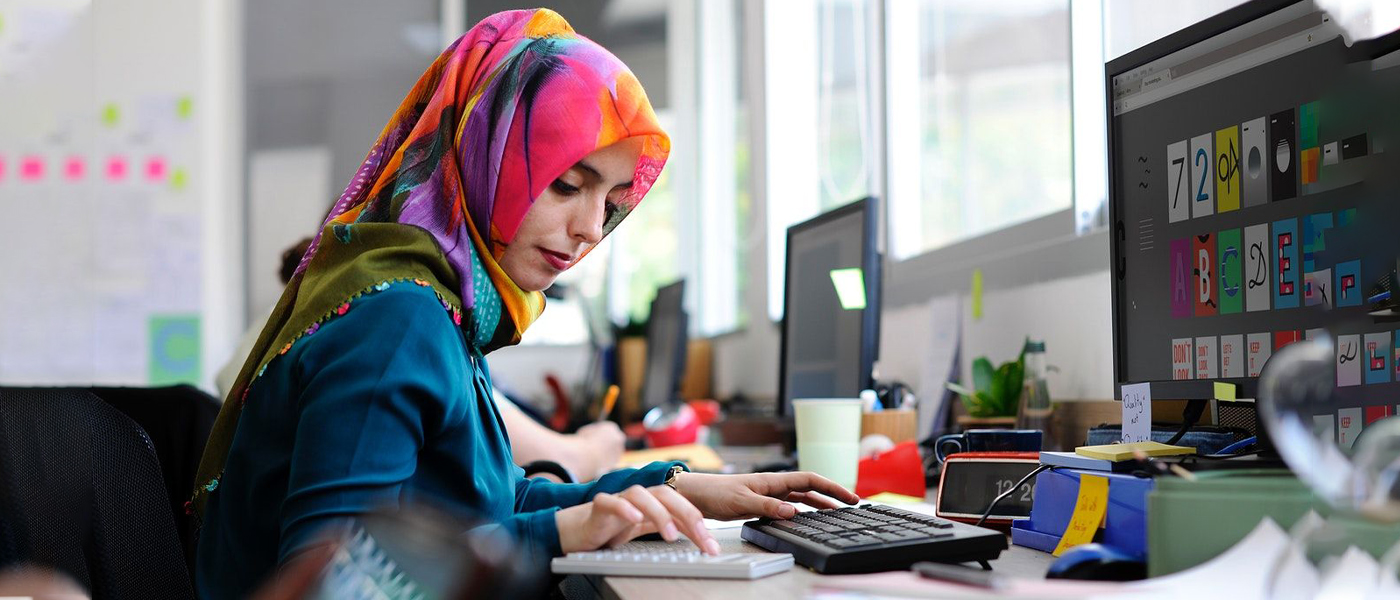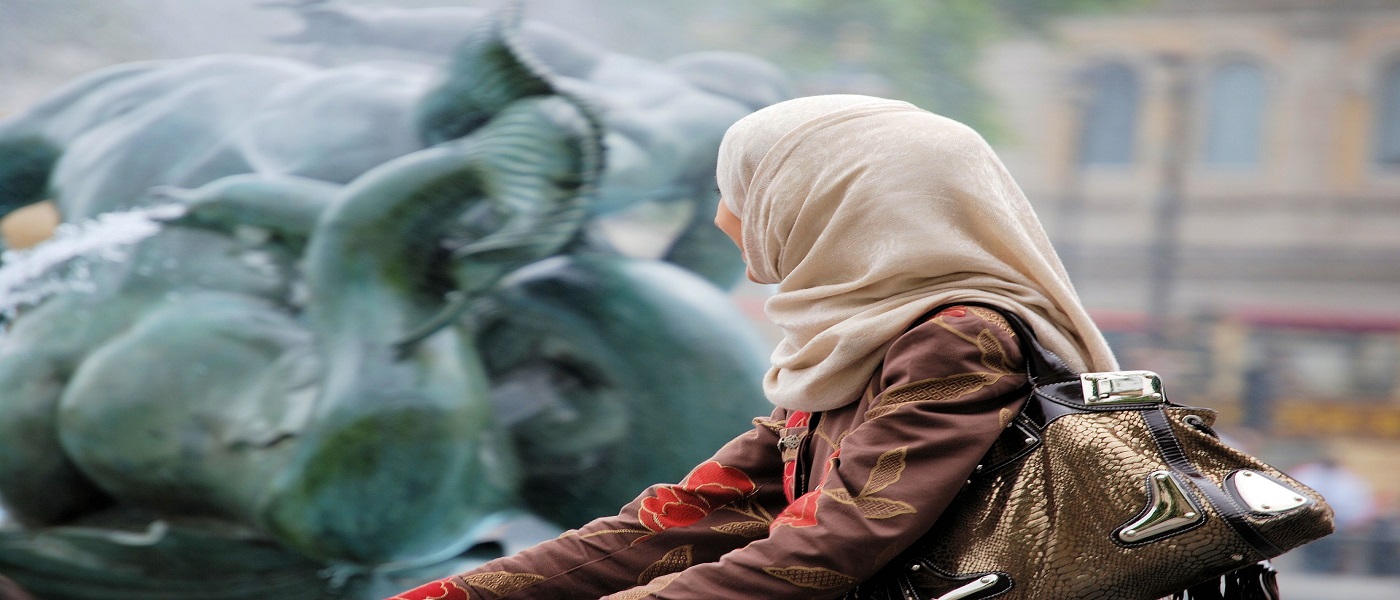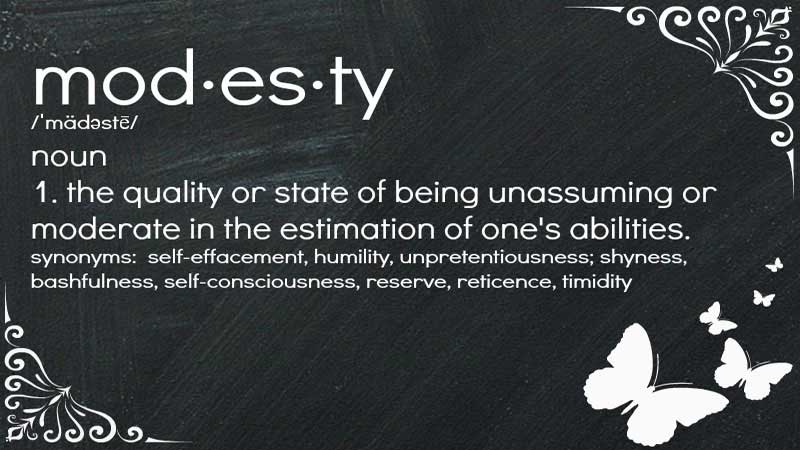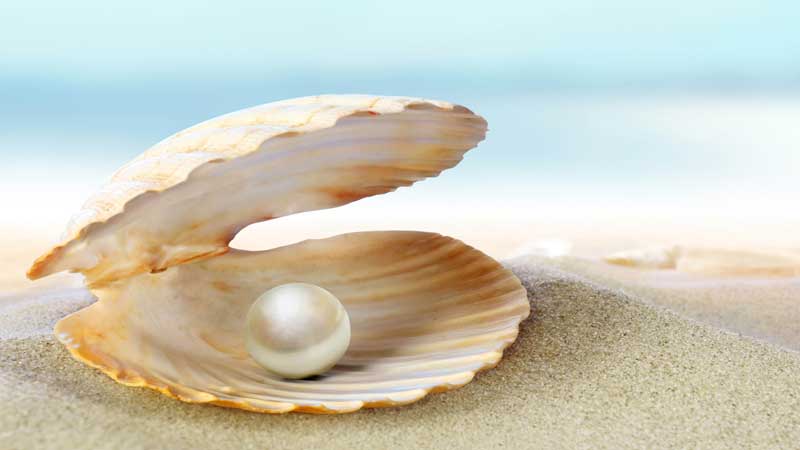

What Careers Can a Hijab Wearing Muslim Woman Choose?
Living as a Muslim woman in any country, be it Canada, the USA, England, or Australia, you might need to find a job. Either you are single or married, graduate or undergraduate, a mother or a wife, having a job might be necessary for you.
However, the moment you decide to go for a job, fear and anxiety rush into your mind; “What if they do not hire me because of my Hijab?”; “Do I have to find somewhere with Muslim personnel?” or even “ What if they disrespect me in front of other colleagues? What shall I do?”
Well, here we are going to discuss some of the issues and matters related to employed or to-be-employed Muslim Women.
1. Does A Muslim Woman Have any Limitations in Choosing a Career?
As a Muslim woman, you are free to take any job you want, be it a designer, a manager, a teacher, etc. but before choosing that job, you need to consider a few points.
You are a Muslim, and you have chosen to be a Muslim
You have faith in whatever you do, and you need to follow the Commands of Allah to be the person He wants. So, never give something greater away for the sake of something lesser. Allah has promised to help us if we believe in Him with all our hearts, and he will not leave us alone.
Have faith in Allah and confidence in yourself. Be who you are: A Muslim Woman!
“Indeed, those who have said, "Our Lord is Allah " and then remained on a right course - the angels will descend upon them, [saying], "Do not fear and do not grieve but receive good tidings of Paradise, which you were promised.” Quran (41:30)
Your Family Comes First
You may choose to work for many reasons, be it financial problems or your interest in a particular career or simply to express yourself somehow to the world. Whatever the reason, you shouldn’t hurt yourself with the job you choose to take, either mentally or physically. You might be even hurting your family (your kids and your husband) or even your parents. The first priority is family, and will always be. So, try to choose a job that does not harm you nor your family. Imam Sajjad (AS) states that each of our organs has a right. For instance, it’s your ear’s right to hear what is good for you in this world and the afterlife and it’s your eyes’ right to see good things and be closed from anything that Allah has wanted us not to see ( scenes of torture, eroticism, slaughter, intercourse, etc.,) [1]. As your body has a right, so does your family. Remember to preserve theirs before choosing any careers.
Imagine you have chosen to be a volleyball coach. You have already done surgery on your knee, and your doctor has told you to take good care of it. Both logic and Islam say that being a coach hurts your knee, and that can’t be a suitable job for you.
Be Cautious About Your Work Relationships with Men
Men and women work together in most workplaces, and that is a fact. There Is a thing that each Muslim woman needs to keep in mind, and that is to be cautious of those relationships and does not let them take the form of irregular man-woman interactions. They need to be neither cold and disrespectful nor arouse emotional or sexual attractions [2]. Allah tells us how to control that:
“Tell the faithful men to cast down their looks and to guard their private parts. That is more decent for them. Allah is indeed well aware of what they do. And tell the faithful women to cast down their looks and to guard their private parts, and not to display their charms, beyond what is [acceptably] visible, and let them draw their scarfs over their bosoms …” Quran (24: 30-31).
“O wives of the Prophet, you are not like anyone among women. If you fear Allah, then do not be soft in speech [to men], lest he in whose heart is disease should covet, but speak with appropriate speech.” Quran (33:32)
2. Can I Take off My Hijab at Work?
As far as we all know, we are only allowed to take off our hijab in front of other women or men who are among the Mahram men of our family. So, you may be allowed to take off your hijab only if you are working with other women or Mahram men of your family. Some may want to make others gradually accept their chosen faith. But, the fact is that you are a Muslim, and you need others to welcome you, respect, and value your talents and hard efforts. So, let others see who you are and the reality of your Faith. That would bring you more of a trust and confidence.
Careers and professions play an essential role in our everyday lives, and at times, they are even hard to live without. At the same time, women are active members of each achieving society. Islam neither forbids them from social activities nor limits them to stay at home and do daily chores. It just asks them to be careful and watchful about their own health, safety, and femininity and also beware of what happens in their interactions and communications.
References:
- Peiravi, Ali (1992) the Treatise on Rights by Imam Sajjad (AS)
- Nikzad, Abbas (2005) Practical Women Studies, Vol 25
Share This Article

What are the social rights of women in Islam?
Some people who are not well acquainted with the true Islamic teachings think that Islam has not provided for all Muslims equal social rights. And on account of the fact that Islam has made some distinctions between men's and women’s rights they conclude that the same distinctions are made in their social rights. As a result, the picture of women in Islam to them is usually the stereotype of an oppressed, inferior figure and bereft of any right.
The Concept of Gender Equality in Society
Islam is the religion of equality and gender is not a standard for the preference of one over another. In fact, Islam has not only taught the equality of all humans before God but also promoted it in the social sphere. Consequently, in the Islamic social system men and women are granted equal rights and there is no difference between them about their gender.
But, the point is that “equality” does not mean the “similarity” of their rights, since men and women are not identical to one another in many respects [1]. Therefore, we can deduce, although through comparing their rights a kind of disparity appears at the individual level, both of them privileges equal rights on the social scale.
The concept of women’s equal social rights is practically extended in all aspects of social life, and meanwhile, the “equality” does not reflect the meaning of “sameness.” Instead, it means that their social rights are equated in the matters related to self-worth and individual value to those of men.
Women’s Rights & The Right of Seeking Employment
Women are given a free hand to choose the occupation they want. But they have to note that their occupations should neither be incompatible with their physical and spiritual characteristics [2] nor in conflict with their duties towards their families.
This is why Islam has absolved them from providing for the family in the first place so that they become able to take care of their household as best as possible [3]. However, they are entitled to receive a fair wage by their works either outside the house from their employers or inside the house from their husbands if they ask for it [4].
The Right of Traveling and Activity in An Ethical Society
There is no restriction on women traveling alone if it is not inconsistent with the interests of their families. And regarding their social presence, it is a women’s right to be protected from men’s malicious eyes, whose obligation is casting his eyes down towards them [5].
The Social Security, Juridical and Political Rights of Women in Islam
In the Islamic social system, an equal emphasis is given to women for benefiting from social security systems and social services [6]. Also, women’s right in benefiting from Islamic legal and juridical systems is equally safeguarded.
Many stories from the early period of Islamic history deal with women who referred their disputes to the Prophet (PBUH&HP) in the same way as men sought his judgment [7]. Moreover, not only they share the right of election and the nomination to political offices with men but also can access the highest levels of political authority due to the Islamic laws, provided that it is not inconsistent with their physical and spiritual capacities and their responsibilities towards their families [8].
The Right to Have Education
This right is so much important that Prophet Muhammad (PBUH&HP) once commanded that even slaved girls should be educated [9] and in one famous narration he considered seeking knowledge an essential task for both sexes [10].
Women’s Social Obligations
In the light of the above facts, we can conclude that the idea of inferiority of the social status of women in Islam to men is void and baseless. However, as it was mentioned earlier, men's and women’s social rights are “equal” and not “similar” due to great differences between their characteristics.
That is why the social obligations of women in Islam are narrower than those of men; as Islam has exempted them from the burden of providing maintenance for the family [11] and even some religious practices.
References:
- Mutahhari, Murtadha, The Rights of Women in Islam.
- Amini, Ibrahim, An Introduction to the Rights and Duties of Women in Islam.
- Penny, Sue, Islam, p.39.
- Lois, Beck, Women in Iran from 1800 to the Islamic Republic, pp. 165-166.
- Muhammad Javad, Bahonar, Islam and Women’s Rights.
- Universal Islamic Declaration of Human Rights; this article is available at https://www.whyislam.org.
- Johnson, Andy, Religion and Men’s violence against Women, pp. 322-325.
- Mahmudi, Hassan, Issues in Women’s rights: A Practitioner’s Resource Book, p. 47.
- Nasir, Jamal, The Statue of Women Under Islamic Law and Modern Islamic Legislation, p. 15.
- social rights
- Cornell, Vincent, Voices of Islam: Voices of life: family, home, and society, p. 85.
Read More

Hijab in Islam : the Real Meaning
When talking about Hijab in Islam , the first impression that comes to mind is a cloth covering certain parts of women’s body. But is this the real meaning of the Hijab? Is that all Islam intended by ordering to wear Hijab; covering women’s bodies? This is surely one of the functions but is not the whole thing.
Hijab in Islam concerns men as much as women. Indeed, by introducing Hijab, Islam aims to set out a framework on how we dress, how we look, and how we interact in society. This also originates from a superior objective: limiting the human desires towards the opposite gender to one’s private life in the form of a legal marriage and letting the society focus on work and productivity [1].

The Islamic Dress Codes
Islam requires both women and men to dress simply, modestly, and with dignity. Simply said, one should not dress in a way to draw the attention of the others to their physical features. Islam has forbidden wearing the clothing that attracts the attention of the general public, making its wearer known for it because of the type of the fabric, its color, model or because of being worn and unclean [1]; and this applies to women and men both.
According to the Holy Quran, covering and Hijab of body dates back to the time of Adam and Eve in the Garden of Eden: “So when they tasted of the tree, their nakedness became exposed to them, and they began to stitch over themselves with the leaves of paradise.” (7:22). This demonstrates that following the standards of modesty is innate in all human beings, and so do the Islamic dress codes.
Since modesty as the reason to wear the Hijab in Islam is a subjective term, the Quran and Sunnah [i] have laid out the bare minimum to prevent any confusion. The absolute minimum covering in Islam set for men is loose and unrevealing clothing from his navel to his knee [1]. Men are not allowed to wear gold jewelry, silk clothing, or adornments that are considered feminine [1].
Muslim women, like men, are not permitted to wear tight and revealing clothing; especially the ones showing the details of their body. The clothing should cover their hair and body, but covering the face and the hands, from the wrist to the fingers, is not mandated [2]. It is also forbidden for women to wear strong perfume, heavy make-up, or such jewelry that makes a jingle noise with movement and attracts the attention of others, especially strange men. They should not reveal their ornament either. These all let the Muslim women to be recognized in society by the content of their character rather than by their physical appearance and do force men to cease objectifying women.
It should be noted that besides these dress codes, Islam has mandated us to wear beautiful and clean clothes; especially when dealing with others and during prayers: “O Children of Adam! Put on your adornment on every occasion of prayer” (7:31). This also should be considered as much as the clothing rules.
Controlling the Glance as A Part of Hijab in Islam
Islamic precept has introduced a particular way of decency by presenting the concept of controlling the gaze. It is stated in the Quran that: “Tell the faithful men to cast down their looks” (24:30); and: “And tell the faithful women to cast down their looks” (24:31). It means that women and men are both required to keep their gazes downcast unless permitted [ii].
Imam Sadiq (AS) said: “A glance is a poisoned arrow from the arrows of Satan. He who refrains from it [glancing] for the sake of Allah and nothing other than Him, Allah will grant him a faith, the taste of which he will experience.” [3].
Keeping the glance downcast prevents men from lustful thoughts when looking at any woman other than their wife and allows women to protect themselves and guard their modesty. If one truly believes that God is present everywhere and at every second, He sees all he does [iii], and “He knows the treachery of the eyes, and what the breasts hide.” (40:19), he controls his glance in public and in private.

Limits to Talking to the Opposite Gender
As society is composed of women and men, their social interactions and communications are inevitable. Emphasizing the concept of decency, Islam has special guidelines for the interactions between members of the opposite sex. Islam, as the religion of moderation [iv] [4], does not allow a free relation, neither severely restricts this interaction, but allows women and men to communicate in good intention [5]. This means that the speech should be direct and both sides should consider the human identity of the other person, not the gender.
Allah says in the Quran: “wives of the Prophet! You are not like other women: if you are wary [of Allah], do not be complaisant in your speech, lest he in whose heart is a sickness should aspire; speak honorable words.” (33:32).
Although this verse of the Quran addresses the wives of the Prophet Muhammad (PBUH&HP) who were mostly at the old age, it also applies to all other women especially young ones [6]. This requires Muslims, specifically women, to use a serious tone of voice and expression when talking to the opposite gender. Otherwise, their sweet words might seduce the person whose heart might be diseased with lust.
Notes:
[i] The lifestyle and sayings of Prophet Muhammad (PBUH)
[ii] e.g., in the case that a witness looks at the face of a non-mahram to recognize him/her.
[iii] “does he not know that Allah sees [him]?” (96:14)
[iv] “Thus We have made you a middle nation that you may be witnesses to the people” (2:143)
References:
- HIjab in Islam
- A. Aroussi Howayzi, "Tafsir Noor al-Thaqalayn", vol. 3/589, T. 105.
- M. B. Majlesi, "Bihar al-Anwar", vol. 101, p. 40.
- N. Makarem Shirazi, "Tafsir Nemooneh", vol. 1, p. 483.
- Hijab in Holy Quran
- M. Qara'ati, "Tafsir Surah al Ahzab."
Read More

